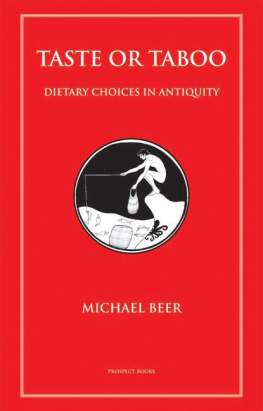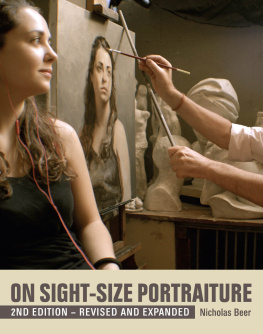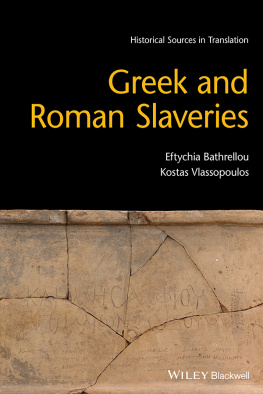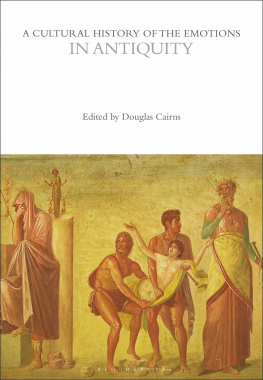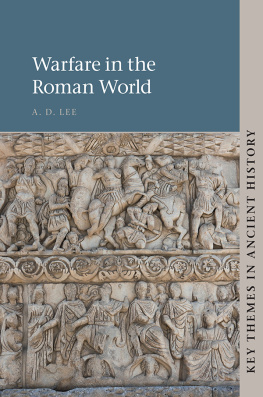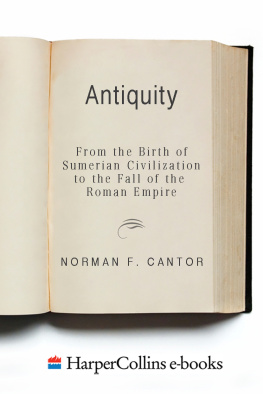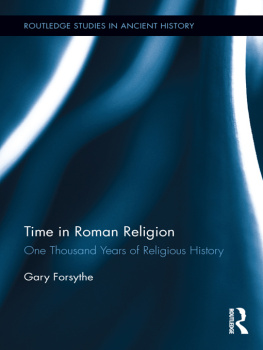T he idea for this book was born from research for my doctoral thesis in classics that I undertook at the University of Exeter from 2004 to 2007. I owe an immense debt of gratitude to all those who took the trouble to glance at my work, offer helpful suggestions and moral support and who helped shape the material that eventually became the basis of this book. To Professor John Wilkins, whose sage advice and encyclopaedic knowledge of ancient food matters formed the basis of numerous hours of fascinating discussion (and often, much re-writing). To Professor Daniel Ogden, for encouragement and helpful words. To Pauline, Anna, Sharon, Steve and many others who offered constructive criticism and suggested useful avenues of research, and put up with my ramblings about Pliny the Elder and Athenaeus. To Tom Jaine and Prospect Books for making the creation of this book such a rewarding endeavour. And finally to Anne, for patience, tolerance and much sacrifice over the years, and without whom none of this would ever have come to pass.
INTRODUCTION
A n influential and wealthy young man, whose prodigious physical appetites inevitably lead to weight gain, strives to keep excess flab at bay by repeated use of enemas and emetics. An elderly gentleman, also powerful and affluent and a close relative (in fact, the formers stepfather), has the disconcerting habit of having a feather put down his throat after his evening meal to induce vomiting, in a quest to purge his body of excess food and drink. Their wealth and status means they are afforded ample opportunity to indulge their every gastronomic fantasy. However, the former, with pretensions to an acting and singing career, knows that the public will not accept obesity in their idol (and it will be equally frowned upon by his peers), and that his over-indulgence is likely to ruin his voice and to impact upon his stamina to undertake arduous acting roles. The elderly man is merely greedy and wishes to make room in his stomach for his next debauch. In this rarefied world, where money is no object, go-betweens are able to procure whatever their employers require to satisfy their dietary (and other) peccadilloes. Meanwhile, the poorer sections of society (the majority) struggle to find even the most basic foodstuffs. The gap between the haves and have-nots is a yawning chasm.
I am, of course, not speaking of some rock star or scion of an old European banking family, nor am I referring to the food shortages that affect many parts of the world in the early years of the twenty-first century. The first man is Nero, ruler of the Roman empire between ad 54 and 68. The second is his stepfather and predecessor, the emperor Claudius. These anecdotes may seem to be derived from some Latin equivalent of the modern magazines which seek out and expose deviant celebrity behaviour, but are, in fact, culled from the pages of the imperial biographies of Gaius Suetonius Tranquillus, writing at the beginning of the second century ad, nearly a hundred years after their. The way that a man conducts himself with his family or in his private business and the way that he acts in office are symbiotically linked. In our own time, politicians may be judged untrustworthy if they have an extra-marital affair or committed some misdemeanour in their youth. Their desire for the private and public spheres to be treated separately will get little support.
It is not a new phenomenon: the emperor Tiberius, ruler of the Roman world between ad 14 and 37, by all accounts (well, at least by the accounts of Tacitus and Suetonius) was a man who lacked the common touch. Without the benefit of an effective public relations office, this old soldier was seen as aloof and cold. He succeeded a charismatic ruler (Augustus) who had a gift for political spin (the situation is not unknown in modern politics: think of Wilson and Callaghan, Blair and Brown). His disdain for the wearisome business of public life led him to periodically take himself out of the public eye and into seclusion (on the islands of Rhodes, and Capri, in the Bay of Naples). Such isolation inevitably led to speculation about what he got up to (not helped by the widespread resentment against the ruthless and cruel policies implemented in his absence by his right-hand man, Sejanus). Suetonius accused Tiberius of setting up a hotbed of sadistic cruelty and paedophilic abuse on Capri. This may or may not have been true, but it was felt that this was the kind of thing that this dour and lecherous man would do. The reputed activities of Tiberius took on the air of Chinese whispers or urban legend, a phenomenon still common in the world of celebrity gossip.
Suetonius was not above the odd bit of scandal himself. Employed by the emperor Hadrian as imperial secretary in charge of correspondence, he was The salacious and exotic inevitably triumph over the dull and worthy. Tales of decadence and sensuality beat administrative and religious reforms hands down.
Drawing parallels between the ancient and modern world is a perilous endeavour. It would be ludicrous to suggest that we resemble our Greek and Roman antecedents in every way. There are many aspects of the ancient world that we would find alien. However, considering their vast legacy of art, philosophy, politics and science, it would be equally obtuse to say that no valid comparisons can be made. For instance, in my opening paragraph, I playfully suggested the similarities in the decadent behaviour of the rich in both ancient and modern societies. I also pointed out the enduring appeal of celebrity gossip and tales of grotesque behaviour amongst the rich and famous. The excess of the aristocracy contrasted with the miseries of the peasants is a common theme in European history; for example, the oft-repeated (although perhaps untrue, and certainly misleading) anecdote about Marie-Antoinette and her attitude to the culinary conundrums of the French peasantry. My examples concerning the behaviour of Nero and Claudius were also in the area of food, specifically over-indulgence and its subsequent ramifications. Again, the history of food consumption, and the often outlandish extremes of the dietary habits of the lite, are well-worn themes. If you were to ask anyone what they knew about the Roman empire, fairly quickly after gladiators would come a mention of outlandish dishes and people vomiting after meals in order to consume more (the Latin term vomitorium, understood by many to mean the room where this act was supposed to have taken place, actually means an exit from an amphitheatre).

